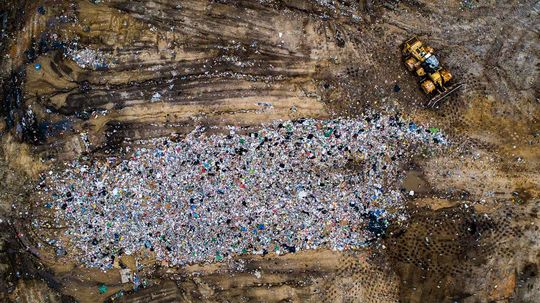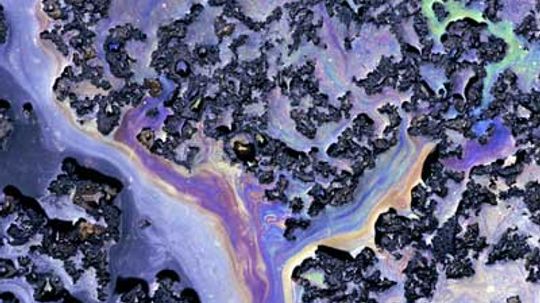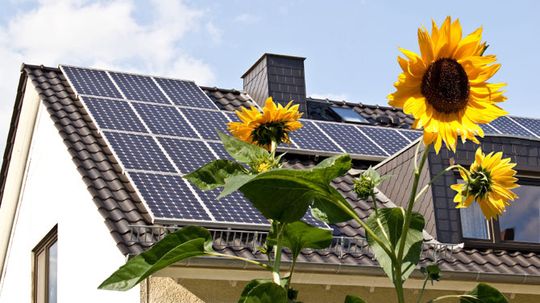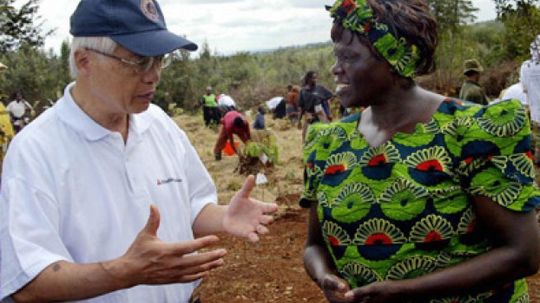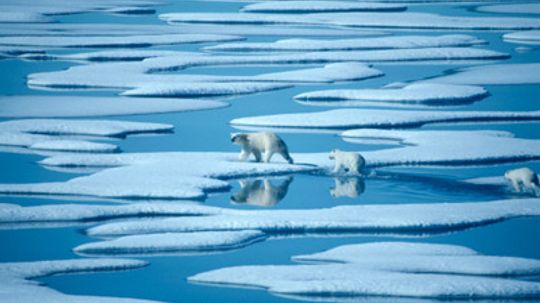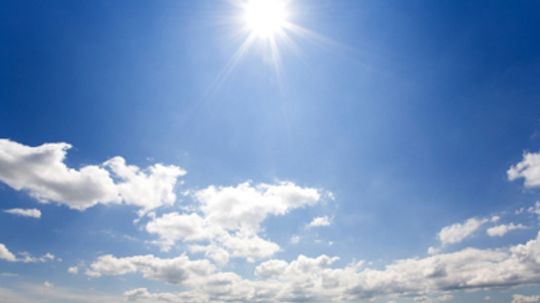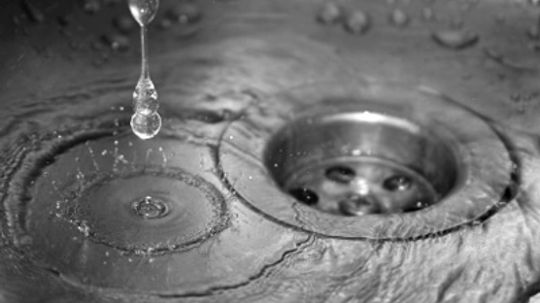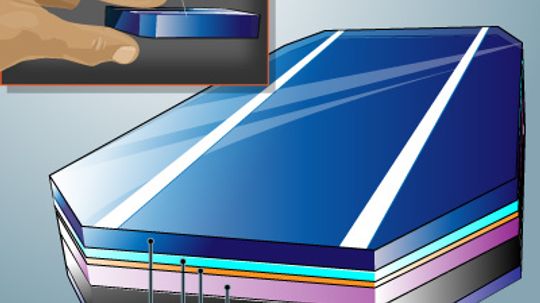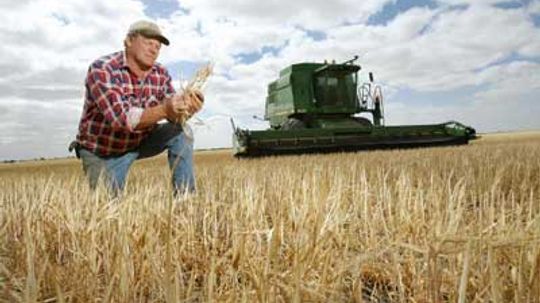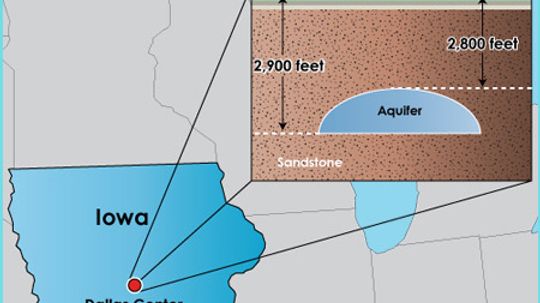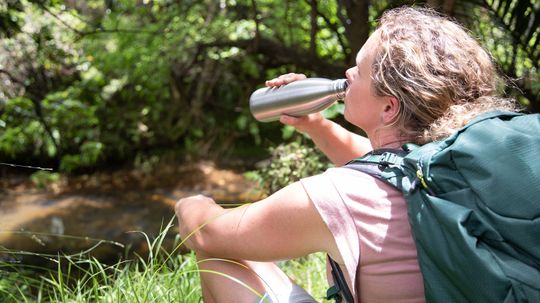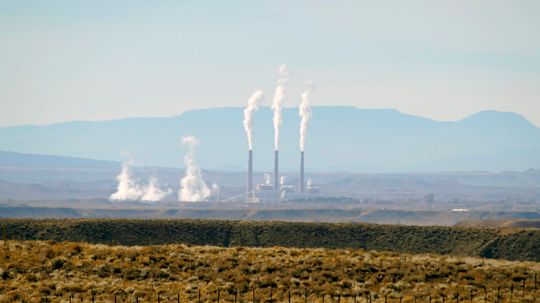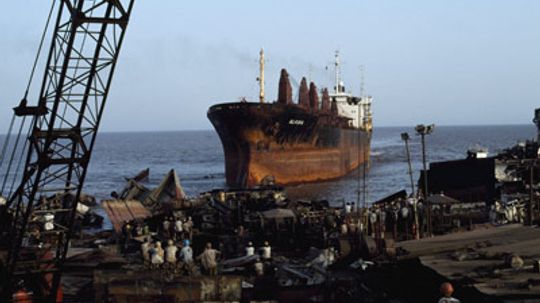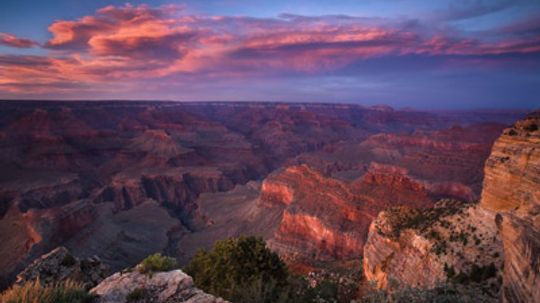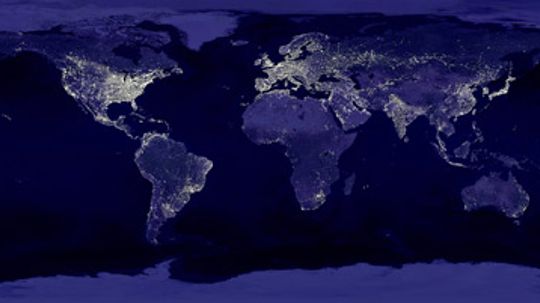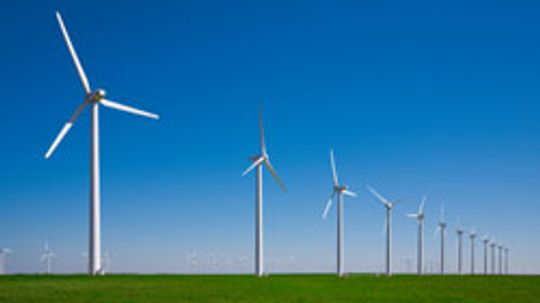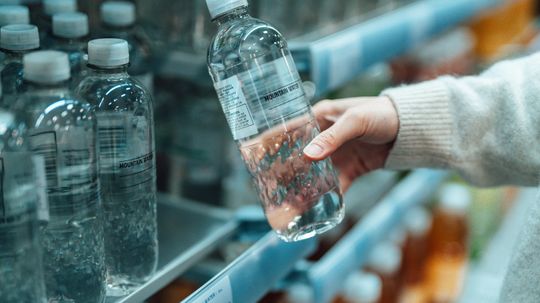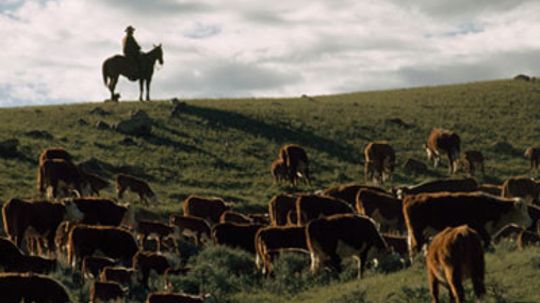Green Science
Green Science is the application of eco-friendly thinking to scientific disciplines. Learn about global warming, pollution and other impacts on nature and the planet, plus what we can do to combat them.
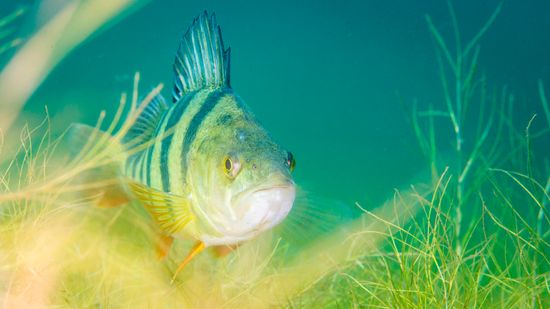
The Fish Doorbell Isn't a Joke ... Seriously
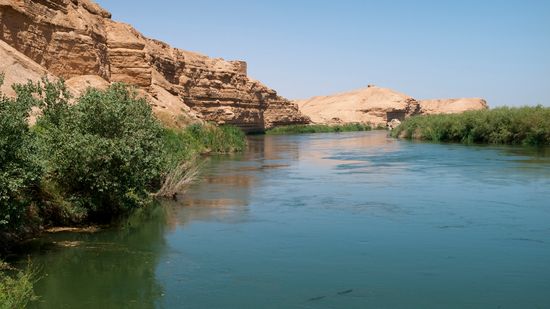
The Euphrates River, at the 'Cradle of Civilization,' Is Drying Up
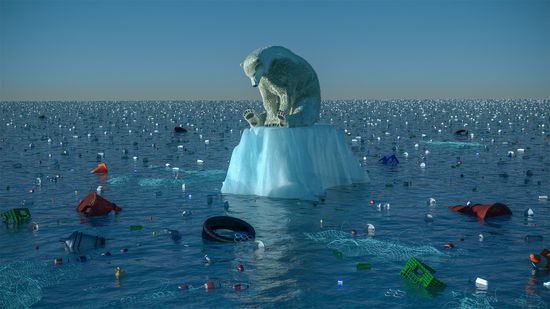
Study Says 2035 Is Climate Change Point of No Return
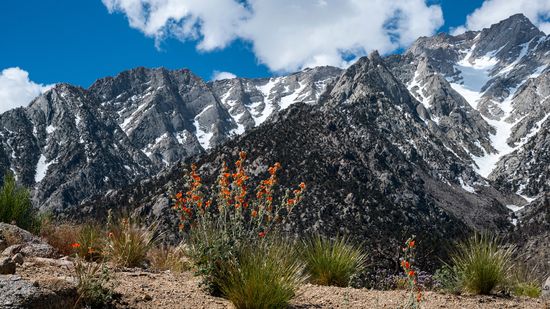
What State Has the Most Mountains in the U.S.? 8 Peak Records
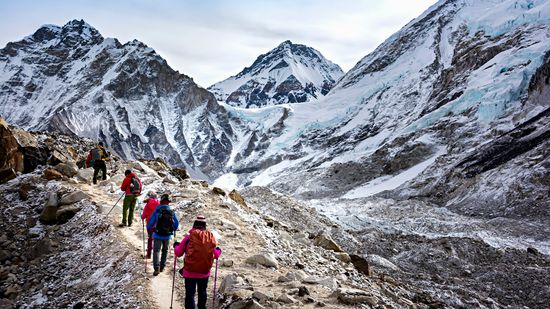
The Most Dangerous Mountain to Climb (and 14 Giving Steep Competition)
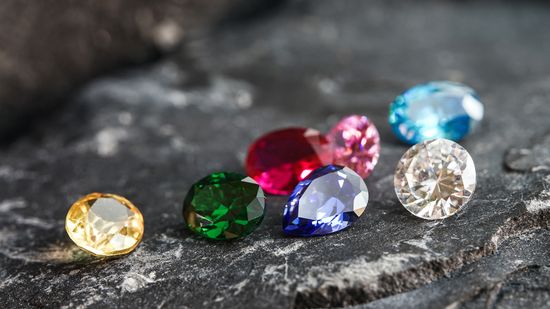
15 Types of Gemstones to Add a Little Sparkle to Your Life
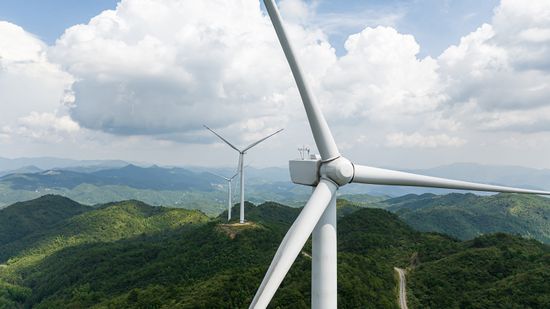
How Many Birds Are Killed by Wind Turbines, Really?

How a Lithium Mine Works and Impacts Local Communities
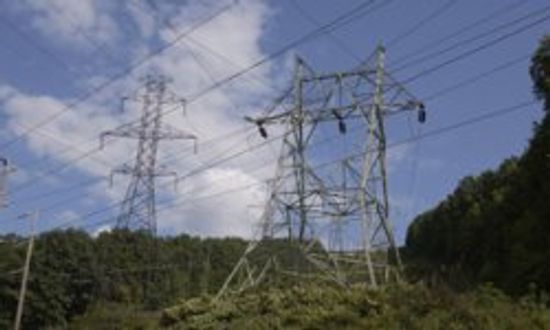
How to Sell Electricity Back to the Grid
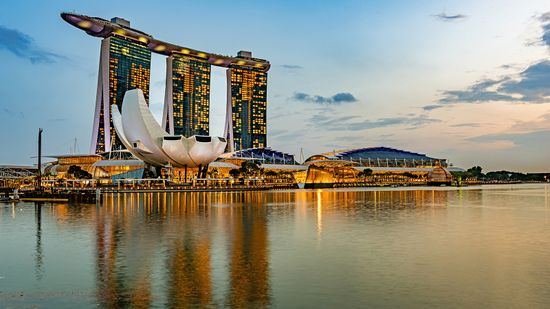
6 Most Futuristic Cities Powered by Renewable Energy
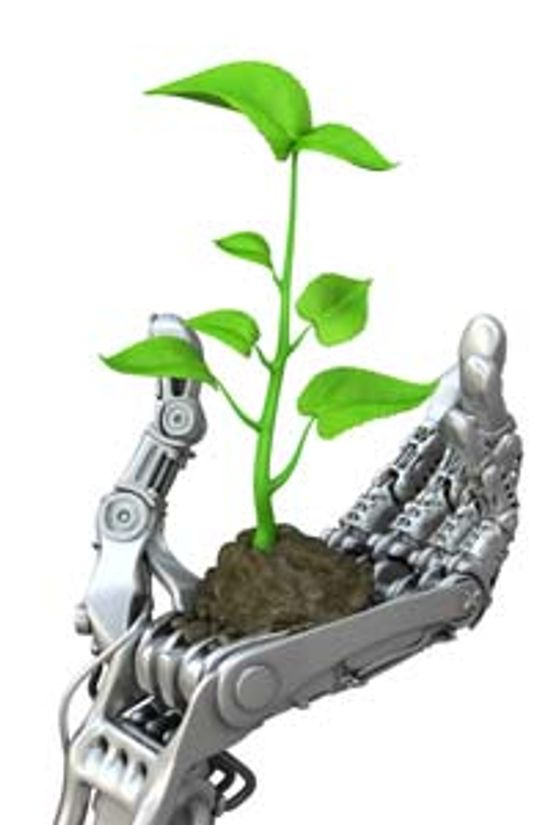
Top 5 Green Robots
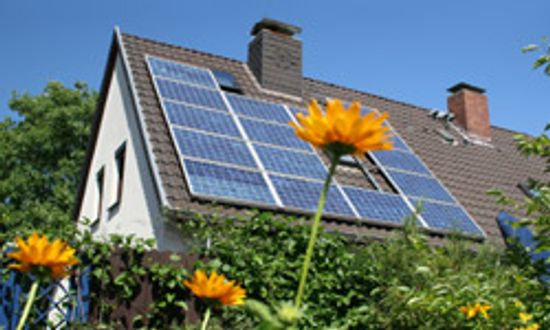
5 Things to Consider When Building a Solar-powered Home
Learn More / Page 2
How do plants compare to solar cells when it comes to collecting solar energy? Would you get more power from an acre of ground by putting solar cells on it or by raising plants?
We want the ozone layer, but we don't want ozone pollution... Good in the atmosphere but bad on the ground? Find out about ozone pollution, how it affects you and what you can do about it.
What happens to all of that trash you put on the curb every week? It doesn't just disappear into a parallel universe. Much of it probably goes to the local landfill, and how it gets handled there is a very involved system.
Advertisement
It's not really green. It's "green." Unlike asphalt, green pavement is permeable, which means it lets rain soak through to the ground rather than roll off. How does this help our environment?
By Debra Ronca
No one likes paying bills. But you wouldn't have quite so many if you lived off the grid. How do you create enough energy to ditch public utilities?
Thousands of women around the world choose to combat ecological problems -- they're known as ecofeminists. But what would you do if you found out your house sat atop a toxic waste dump?
Polar bears are facing a grim future as global warming melts their Arctic home. What problems are they up against and what's being done to save them?
By Julia Layton
Advertisement
The word "ozone" gets tossed around conversation as casually as a softball, but how many of us could really describe what the ozone layer is? The "hole" in it isn't exactly a hole.
By Jane McGrath
If you've ever walked the New York City streets in July, you've experienced the misery of this phenomenon. Why do cities heat up like furnaces while surrounding rural areas remain cooler?
By Jane McGrath
Scientists say that as of May 2007,. more people now live in urban than in rural areas. So how do planners make cities work for all those people?
Why waste drinkable water on your yard when your old bathwater will suffice? That's the idea behind gray water reclamation -- getting the most out of your water through reuse.
By Robert Lamb
Advertisement
You might think of solar panels as large racks of rigid panels on someone's roof, but newer solar cells are more flexible and efficient.
Scientists are stockpiling the world's seeds, organizing them in giant libraries of planting possibilities. Is every type of plant included? Or, are the seeds of pesky plants shunned?
By Debra Ronca
Protecting the Earth is serious business for a radical group of environmental and animal activists dubbed eco-terrorists. Who are they? Why does the FBI consider them a top priority?
Wind energy is great, but what happens when there's no breeze? The Iowa Stored Energy Park will store compressed air underground. Can it replace traditional energy sources?
Advertisement
You've probably seen some plastic labeled "BPA free," but does that make it safer?
We know that humans are largely responsible for fueling global warming with our carbon emissions. So what if we could seize all that carbon and squirrel it away in a safe place? Well, we can. It's just hard and really expensive.
By Debra Ronca & Mark Mancini
In this mass graveyard, workers dismantle 52,000-ton ships using simple hand tools. Why would anyone want to work at Alang? Is this place doing the world a service by recycling obsolete ships?
Depending on who you ask, urban sprawl is either the best thing that ever happened to growing families -- or the downfall of civilization and the environment as we know it. Learn about the history and consequences of this American phenomenon.
By Alia Hoyt
Advertisement
Many people think that beautiful, blazing sunsets are one upside to living with the smog that hangs over polluted cities. Are they right? Does smog actually enhance sunsets?
By Julia Layton
Usually we're focused on our personal power consumption -- wondering why our gas bill went up or took a dip. But what if we added up everybody's power consumption? How much would it be?
When the wind blows, particles in the gust of air are moving quickly. And that motion carries kinetic energy, which can be captured and harnessed to create electricity. The principle behind a wind-electric turbine isn't too different from an ordinary dam -- only it's capturing wind instead of water.
By Julia Layton
In 2023, the U.S. bottled water industry was worth $94 billion, even with the rise of popular reusable water bottle brands.
By Julia Layton
Advertisement
If ranchers and landowners invest in grass banks, will their payout be nothing but green? Or is grass banking a temporary solution, delaying Mother Nature's inevitable bankruptcy?
We've been warned plenty about the mercury content of fish. And most of us know our new high-efficiency CFLs also contain the shiny neurotoxin. So which source should cause us more concern?
By Julia Layton


